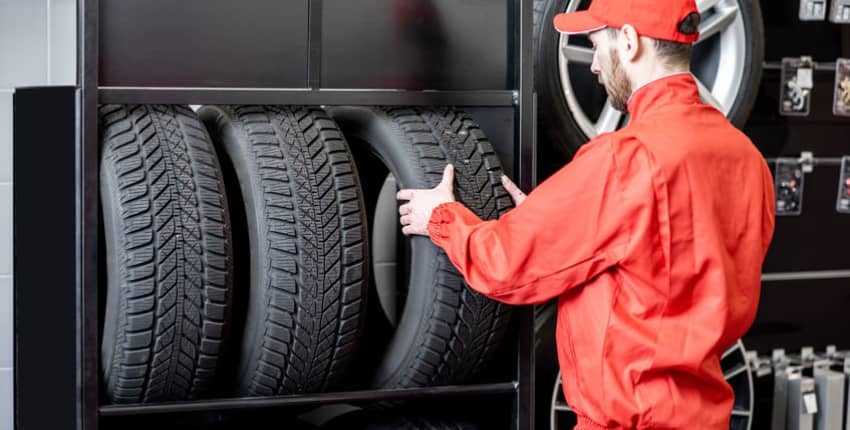Tires are the unsung heroes of your vehicle, crucial for safety, performance, and fuel efficiency. For modern cars and trucks, regular inspection of tire wear and pressure is not just recommended; it’s essential. At 34th Street Garage in Seattle, we understand the importance of tire maintenance and are here to guide you through the how’s and when’s of keeping your tires in top shape.
Understanding the Importance of Tire Inspection
Before diving into the frequency of inspections, it’s vital to understand why tire maintenance is so crucial. Properly maintained tires ensure better road grip, improved fuel efficiency, and enhanced safety. They are your only contact with the road, and their condition can significantly impact your driving experience.
1. Tire Wear: The Telltale Signs of Trouble
Recognizing When to Inspect:
Tire wear can tell you a lot about the health of your vehicle. Uneven wear, for instance, can indicate alignment or suspension issues. Regular inspection helps in identifying these problems early.
How Often to Inspect:
Ideally, tire wear should be checked monthly. Look for signs like uneven tread wear, bald spots, and visible damage. Modern vehicles often come equipped with tire pressure monitoring systems (TPMS), but these don’t always alert you to wear issues.
2. Tire Pressure: Keeping the Balance Right
The Impact of Incorrect Tire Pressure
Incorrect tire pressure can lead to a host of issues, from uneven wear to increased fuel consumption and even tire blowouts. For modern vehicles, maintaining the right tire pressure is critical for optimal performance.
How Often to Inspect:
Check your tire pressure at least once a month and before long trips. Keep in mind that temperature changes can affect tire pressure, so it’s especially important to check when there’s a significant shift in weather.
3. The Role of Tire Rotation in Even Wear
Tire Rotation: A Key Aspect of Maintenance
Tire rotation is an often-overlooked aspect of tire maintenance. It helps in achieving uniform wear, extending the life of your tires.
Rotation Frequency:
It’s recommended to rotate your tires every 5,000 to 7,500 miles. However, this can vary based on your vehicle type and driving habits. Consult your vehicle’s manual for specific recommendations.
4. Alignments and Balancing: The Essentials for Longevity
Maintaining Alignment and Balance
Wheel alignment and balancing are crucial for preventing uneven wear and ensuring a smooth drive. Improper alignment can lead to rapid and irregular tire wear.
When to Check:
Have your alignment checked annually or if you notice uneven wear patterns. Balancing should be done every time you get new tires and checked with every rotation.
5. Seasonal Considerations: Adapting to Changing Conditions
Switching to Seasonal Tires
In regions with severe winter conditions, switching to winter tires and then back to all-season or summer tires is vital. This change not only improves safety but also affects wear.
Seasonal Inspection:
Check your tires at the beginning and end of the winter season if you’re switching tires. This is also a good time to assess wear and pressure.
6. Knowing When to Replace Tires
Deciphering Replacement Time
Knowing when to replace your tires is crucial. A common method is the penny test – if you can see the top of Lincoln’s head when the penny is inserted in the tread, it’s time for new tires.
Replacement Guidelines:
Generally, tires should be replaced every 6 years, or sooner if the tread is worn down. Always refer to your manufacturer’s guidelines and consider your driving habits.
7. Technology and Tires: Modern Advances
How Technology is Changing Tire Maintenance
Modern vehicles come equipped with advanced features like TPMS, which alerts you when tire pressure is low. However, these systems are not a substitute for manual checks.
Staying Informed: Stay updated with your vehicle’s technology but don’t rely solely on it for tire maintenance. Regular physical inspections are irreplaceable.
In the fast-paced world of modern vehicles, tire maintenance is more important than ever. Regular inspections for wear and pressure, along with proper rotation, alignment, and balancing, are key to extending the life of your tires and ensuring your safety on the road. Remember, your tires are the foundation of your driving experience – take care of them, and they’ll take care of you.
At 34th Street Garage in Seattle, we’re passionate about helping you keep your vehicle in top-notch condition. Follow our blog for more expert tips and advice on car and truck maintenance. Drive safe and give your tires the attention they deserve!

